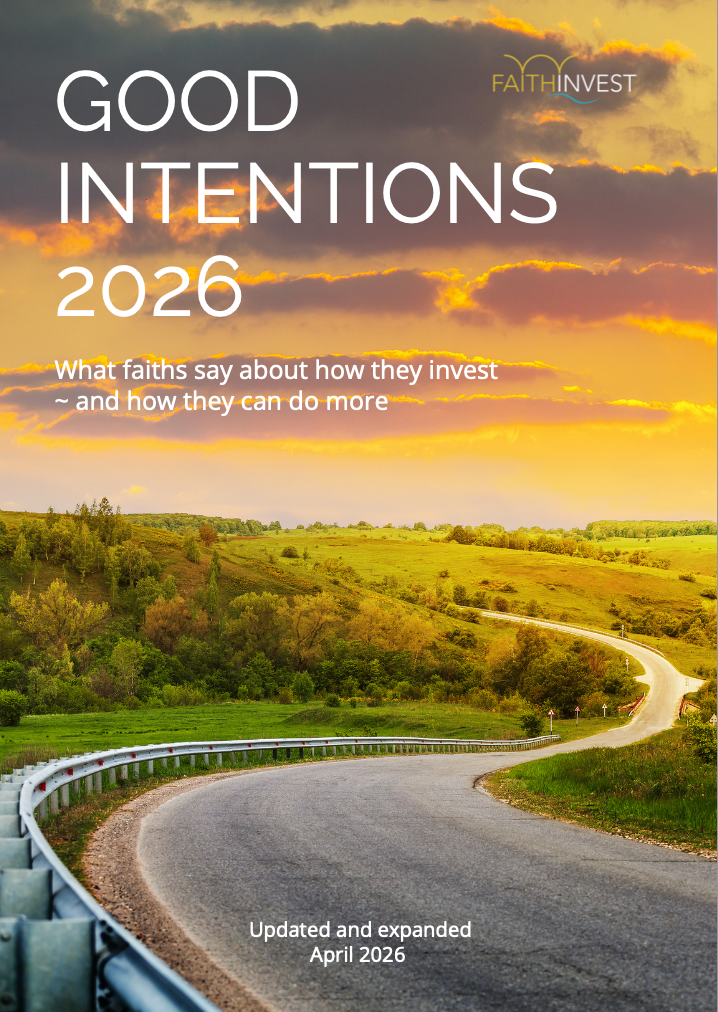Bethany Land Institute case study
- FaithInvest

- Jan 11, 2024
- 6 min read
Updated: Jan 18, 2024
Years before Pope Francis published Laudato Si’ in 2015, three priests from Uganda – Emmanuel Katongole, Cornelius Ssempala, and the late Anthony Rweza – began to notice the gradual decline and devastation of their homeland: wetlands turned to desert, forests levelled, soil and farmland destroyed.
It was in reading Laudato Si’ for the first time that they felt called to respond.
A spiritual crisis
One foundational insight, Fr Emmanuel recalled, was Pope Francis’ idea that the ecological crisis is rooted in a broader spiritual crisis:
'That’s the first time I heard about an underlying spiritual crisis,' he said. 'We cannot engineer ourselves out of the ecological crisis, there needs to be a mindset change. And so [Pope Francis] calls for education programs to cultivate this mindset change, a lifestyle and a spirituality for integral ecology. And when I read that, I called my friend and said, "This is exactly what we need to be about."'
Together, they set out to found an educational institute that would respond to the twin cries ever present in the world, and especially in Africa: the cry of the earth and the cry of the poor. After laying the careful groundwork, Bethany Land Institute (or BLI), an agricultural training institute in Luweero, Uganda, launched publicly in July of 2022.
We cannot engineer ourselves out of the ecological crisis, there needs to be a mindset change – Fr Emmanuel Katongole
The mission of BLI is transformation: to train young people – called 'Caretakers' – in skills of regenerative agriculture, creation care, and agro-economic enterprise to become change agents in the transformation of their rural communities. The work of BLI is to restore right relationship with the land.
'When I talk about BLI, I always locate it within Laudato Si’,' said Fr Emmanuel, now President of BLI and Professor of Theology and International Peace Studies at the University of Notre Dame. At the heart of Laudato Si’ – and at the heart of BLI – is the idea of conversion. Conversion requires a rethinking, a re-evaluating, a re-imagining.
Caretakers of the land
'The first thing that needs to be reevaluated, and rethought, re-imagined is our relationship with the land,' says Fr Emmanuel. 'We have forgotten what it means to belong to the earth.'
In our spiritual poverty, he says, we have come to see land only as property, as an asset – something we own, something we exploit.
The first thing that needs to be reevaluated, and rethought, re-imagined is our relationship with the land. We have forgotten what it means to belong to the earth – Fr Emmanuel Katongole
Reconnecting with the land requires us to shift our understanding of economics. It asks that we move from 'exploiting' the land to becoming 'caretakers' of the land, both 'in service to' and 'in conversation with' it. Watch this short clip to hear more.
Fr Emmanuel discusses how to reconnect with the land in this short YouTube clip.
BLI’s relationship with the land also defines the way it approaches investing.
Just as the title 'Caretaker' is derived from Genesis 2:15 ('The Lord God put man in the garden to tend and to keep it'), so the name 'Bethany' carries special significance. For Fr Emmanuel, the Gospel stories that take place in the town of Bethany are deeply relevant for Africa. In the Gospels, Bethany lies outside of the gates of Jerusalem. It is the village of the poor, where Jesus lived and spent most of his life.
'I’m someone who has also really been captivated and believes in the stories of Bethany. This woman, Mary, who takes the whole jar of perfume and anoints the feet of Jesus. She’s anointing the feet of someone who is about to die. This makes no economic sense…For me, it’s an invitation to invest in the poor. The poor also deserve good things.'
An ethic of investment
The stories at Bethany provide important reference points for investors and institution-builders about a proper culture or 'ethic' of money and investment. 'I have a deep conviction that money is there for the purpose of the Gospel, which is to say for enabling others to experience the ‘good news’ of God’s presence in the world,' says Fr Emmanuel.
Everyone is an investor
At BLI, everyone is thought of as an investor – all are invited to 'invest' or 'pour out' their lives, work, talents, and leadership in service of the mission. As such, learning the 'discipline' of money – from savings and accounting to loans and repayments – is a central aspect of BLI’s curriculum.
Here, BLI’s SACCO (Savings and Credit Cooperative Organization) is especially important. From whatever proceeds the Caretakers earn from their gardens, they save a percentage in the SACCO, which also provides students and graduates with small loans for seeds and equipment. After graduation, Caretakers retain their membership in the SACCO and have access to their savings and loans. This capital is a vital resource for graduates as they transition to building farms of their own.
At BLI, everyone is thought of as an investor – all are invited to 'invest' or 'pour out' their lives, work, talents, and leadership in service of the mission.
For Fr Emmanuel, the most promising aspect of the SACCO is its focus on participatory funding. Caretakers are involved both in funding the SACCO (each according to their capacity), and in making decisions about its investments. Developing a culture and practice of financial cooperatives is essential for ensuring that the poor have access to land, labor, and lodging, as noted by Pope Francis.
BLI is in the early stages of making the SACCO accessible to individual and institutional investors who are interested in boosting its capacity. Such investment would help expand the SACCO’s reach and would also build a small endowment in support of BLI’s programs.
Investing for the long haul
As BLI continues to develop, Fr Emmanuel thinks of investing in three ways. First, as a means of bringing new institutions to fruition: 'We are investing for the long haul,' he says. As such, the BLI campus features well-crafted dormitories, classrooms, and gathering spaces constructed by local masons. 'It is only through institutions,' he says, 'that we are able to ensure the future.'
'Long haul' investing, like education and agriculture, requires a patient trust that 'return' will show itself in time. It also involves a broader understanding of return, one that is more holistic and considers dimensions beyond purely financial benchmarks. The return of BLI’s investment in the land and the surrounding community will unfold over generations.
Second, for Fr Emmanuel, investing is a means of putting our faith in the poor, of enabling the poor to assume control of their lives, and in this, their full dignity and potential.
And third, he conceptualises investing in well-designed programs as a way of building bridges toward a new future. He cites Pope Francis’s words in Fratelli Tutti 186:
'If you help a poor woman cross the river, that is an act of charity, and it is commendable. But it is even more commendable if you build a bridge.' Building bridges, he remarks, is even more challenging than feeding the poor.
Addressing the ecological crisis
As he reflects on the mission of BLI, Fr Emmanuel focuses on challenging our existing economic narratives: 'Addressing the ecological crisis requires us to think that current economic models are also contributing to the crises that we find ourselves in.'
'Money is a detail,' he says. 'An important detail, yes! But a detail.' Here, he expresses the idea that money should always be at the service of mission.
The invitation of Laudato Si’, Fr Emmanuel emphasises, is to live a simpler lifestyle. Again, it is the invitation to convert: our minds, our hearts, our hands. 'The change is about us,' he says. 'It’s not just about, where do we need to invest?'
Click to watch the full video with Fr Emmanuel.
And here lies the challenge of the ecological crisis:
'It requires conversion! Pope Francis says it. But people don't want to hear it. Because we’re thinking so much from a technocratic paradigm. We think we can engineer our way through, either just new technology or smart investment. All of those are important. But there is that kind of component as well, of living Laudato Si’, each one of us. We cannot skirt around that call to conversion. It makes it more difficult. But also a journey.'
For more about the work of Bethany Land Institute, visit bethanylandinstitute.org.











